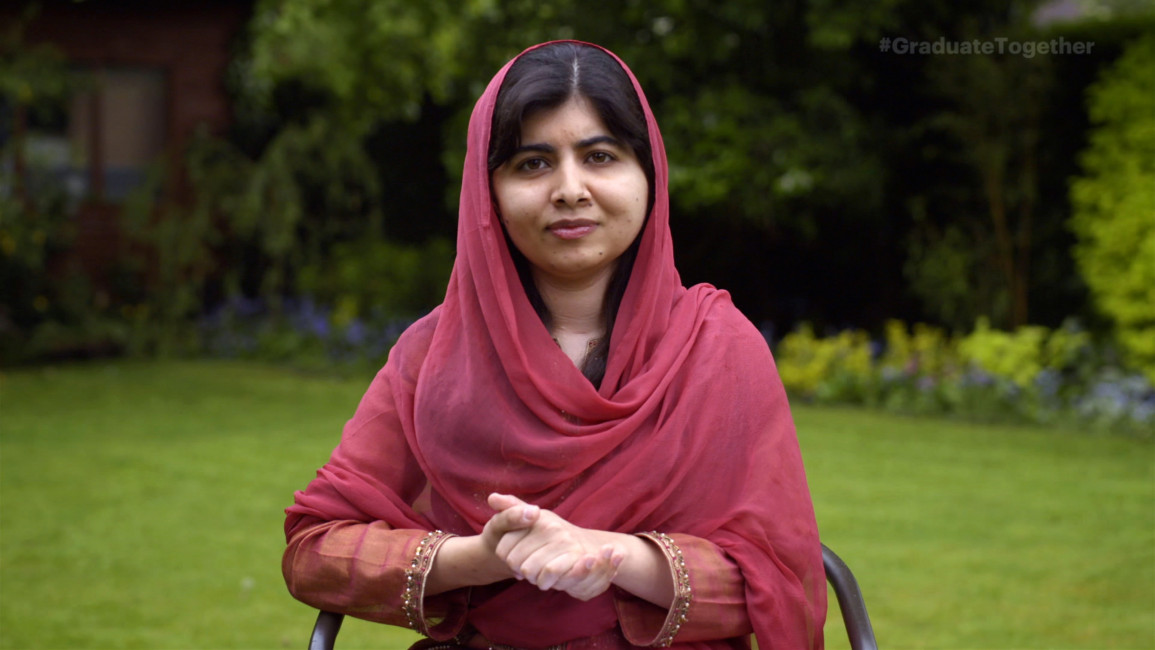Malala's British Vogue interview prompts backlash in her native Pakistan
Comments made by Nobel Peace Prize winner and girl's education activist Malala Yousufzai questioning societal expectations on marriage have drawn a vitriolic response by conservative social media users in the activist's native Pakistan, NPR have reported.
Gracing the front cover of British Vogue's July edition, the Oxford graduate was quoted as saying in her interview that she still didn’t understand "why people have to get married".
"If you want to have a person in your life, why do you have to sign marriage papers, why can't it just be a partnership?"
She jokingly added that her mother cautions her against alternative unions, advising to get married because "marriage is beautiful".
Birmingham-based Malala also discussed socialising in pubs with her friends and shared her view that wearing a headscarf is "cultural".
I know the power that a young girl carries in her heart when she has a vision and a mission – and I hope that every girl who sees this cover will know that she can change the world. Thank you @BritishVogue, @Edward_Enninful & @thedalstonyears pic.twitter.com/3OYejo5Hnm
— Malala (@Malala) June 1, 2021
Not soon after, the hashtag #ShameOnMalala became a top trend in her native Pakistan. Her comments were interpreted as belittling what many consider to be a sacred institution in the Muslim-majority country, where civil partnerships are widely seen as taboo.
The responses which filled Pakistani Twitter feeds and news sites comment sections varied from cynical to extreme, according to the NPR report.
They ranged from conspiratorial accusations of the Taliban shooting survivor being an anti-Muslim agent of Western values and influence, through to outright insults, and even rape and death threats.
The crude backlash blamed the Taliban for failing to "hit a single perfect target" in reference to the assassination attempt she survived as a child.
The Oxford graduate’s father hit back at those he described as "trolls" who he said had taken his daughters comments out of context.
"Social media misinterpreted what she said, taking out selective things out of context changing it and interpreting it," Ziauddin Yousufzai said.
Others also joined in defending Yousafzai, voicing their support.
"Extremely graceful. Keep blooming... We are proud of you," one Twitter user wrote.
Another tweet sang her praises: "Looks beautiful! I never understood the hatred among Pakistanis against Malala. She is a Pakistani hero in the west & reminds the world that Pakistanis are humble, kind, resilient, compassionate, talented. Neither of the qualities exist in ppl who don't like her, lol."
One Twitter user referred to complaints that Yousafzai was tarnishing Pakistan's image: " 'Malala is making Pakistan look bad' Yeah because it looked so great that a 15 year old kid was shot in the face for wanting an education."
Yousafzai, often referred to as Malala, is known for human rights advocacy, especially the education of women and children in her native Swat Valley in Khyber Pakhtunkhwa, northwest Pakistan, where the local Pakistani Taliban had at times banned girls from attending school.
Her advocacy has grown into an international movement, and according to former Pakistani Prime Minister Shahid Khaqan Abbasi, Malala has become "the most prominent citizen" of the country.


![Security forces reportedly attacked Egyptian protesters outside the UN Women's Office in Cairo. [Facebook]](/sites/default/files/styles/image_212x120/public/2024-04/Facebook.jpg?h=dec22bcf&itok=Wj24fufV)
